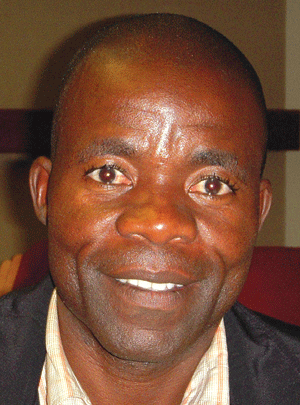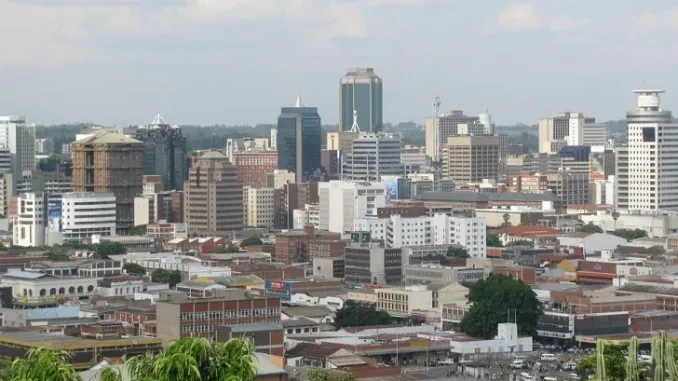
IN late 2012, Knowledge Transfer Africa (KTA), an indigenous knowledge systems company launched eMkambo, an interactive electronic knowledge-sharing platform for the agriculture sector in partnership with software developer Afrosoft Holdings.
Having been closely following this development, NewsDay columnist Omen Muza (ND) recently caught up with Charles Dhewa (CD), KTA chief executive officer and eMkambo founder and asked him about eMkambo’s progress so far, its linkages with other key market infrastructure and its prospects.
ND: Congratulations on the launch of eMkambo. How has the market received it since its launch in late 2012?
CD: Thank you! The market is excited and highly positive — judging by feedback from smallholder farmers, agro-dealers, private companies, agriculture-oriented NGOs and government departments.
ND: What challenges and opportunities have you encountered so far?
CD: The main challenge has been slow buy-in by financial institutions whom we expected to quickly start supporting an initiative that enables them to gain accurate insights on the agriculture sector in which they express keenness to invest. One of the biggest opportunities is the proliferation of mobile phones among smallholder farmers, the majority of whom are thirsty for useful information for decision-making, not just stories about how other farmers are winning prizes.
Another important opportunity is a realisation by NGOs supporting agriculture that pursuing individual impact is no longer a good idea. By integrating information, ideas and failures from diverse sources, eMkambo is evolving into such an integrated platform through which knowledge flows and is regularly enriched.
ND: eMkambo has a developmental motive and it is always a challenge to balance this with a commercial motive, especially in an illiquid environment characterised by donor fatigue and a banking sector which is increasingly risk averse. Can you clarify eMkambo’s business model for the readers: How does it make money to sustain its operations?
- Chamisa under fire over US$120K donation
- Mavhunga puts DeMbare into Chibuku quarterfinals
- Pension funds bet on Cabora Bassa oilfields
- Councils defy govt fire tender directive
Keep Reading
CD: Riding on the expansion of ICTs in Zimbabwe, our business model is anchored on leveraging agricultural content. While the ICT industry is said to be growing in Zimbabwe, it is mainly the number of gadgets (phones, laptops and other hand-held devises) that is growing, yet the important asset is content not gadgets. To this end, we are investing in gathering, processing, customising and brokering agricultural content which should be the lifeblood of ICT gadgets.
The more content we gather and share through eMkambo, the more farmers buy air time and the more income earned by mobile service providers. In this sense, we are engaging mobile service providers to hammer a concrete arrangement enabling us to get a revenue share from the volume of mobile phone conversations generated through eMkambo. The platform has created a space for private companies to acutely target their markets, so these companies pay to advertise on eMkambo where they get direct feedback from specific farmers interested in their products.
ND: How do you intend to succeed in co-ordinating all these stakeholders with their diverse, vested interests and the natural tendency to keep information in a format that suits their own purposes?
CD: We have approached the issue from the market end going back to the farms. Although agricultural stakeholders engage in diverse activities, their sweat eventually reaches the market, either through informal markets such as Mbare or through private contract companies.
In this sense, the market is a unifying force through which we are gathering knowledge relevant to all stakeholders who want to see the value of their work. The market is assisting us in setting a common agenda for all the stakeholders interested in enhancing agricultural development through ICT-enabled knowledge sharing.
ND: There is a multiplicity of initiatives that purport to serve the interests of farmers when some evidently don’t. What is eMkambo’s unique selling proposition that enables it to deliver real value to the man or woman on the ground — the resource-constrained rural farmer?
CD: Rather than following a top-down knowledge delivery model, we are building on what agriculture stakeholders already own and know. The majority of farmers already have mobile phones. What they lack is relevant content. This is the problem we are geared to solving. More information means more choices for smallholder farmers ND: One could say that in terms of inclusivity, affordability and convenience, eMkambo’s objectives are similar to those of EcoCash. Are there any prospects of interfacing or integrating the two platforms in order to bring a payment platform into the mix?
CD: For us at eMkambo, agricultural information and knowledge is the currency. Linking farmers selling diverse commodities throughout the country, for instance, should make EcoCash a handy channel for transactions to happen. So yes, there is definitely scope for integrating not only eMkambo and EcoCash, but also other financial platforms provided those driving them are interested in understanding the intricacies of agricultural markets in Zimbabwe.
ND: Key institutional infrastructure such as the Commodity Exchange and full-service Credit Reference Bureaus may have been long in coming, but they will eventually be set up. How is eMkambo positioning itself to work with these?
CD: Without information and intimate knowledge of the evolving agricultural scenario in Zimbabwe, the Commodity Exchange may struggle to be relevant.
Working at “informal” produce markets such as Mbare on a daily basis is giving us a thorough understanding of some of the key elements to be considered when designing a new Commodity Exchange. We are ready to play the meaningful role of knowledge-brokering in this initiative.
ND: What’s the likely impact of eMkambo on the functioning of agricultural financing markets in Zimbabwe?
CD: The impact should be very positive. We are profiling smallholder farmers into at least four categories based on diverse parameters such as business acumen and attitude to risk. This intelligence is important for financial decision making.
eMkambo will compel financial institutions to go out and develop balanced relationships with smallholder farmers and informal traders rather than waiting for them to visit banking halls.











